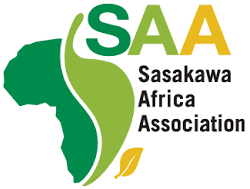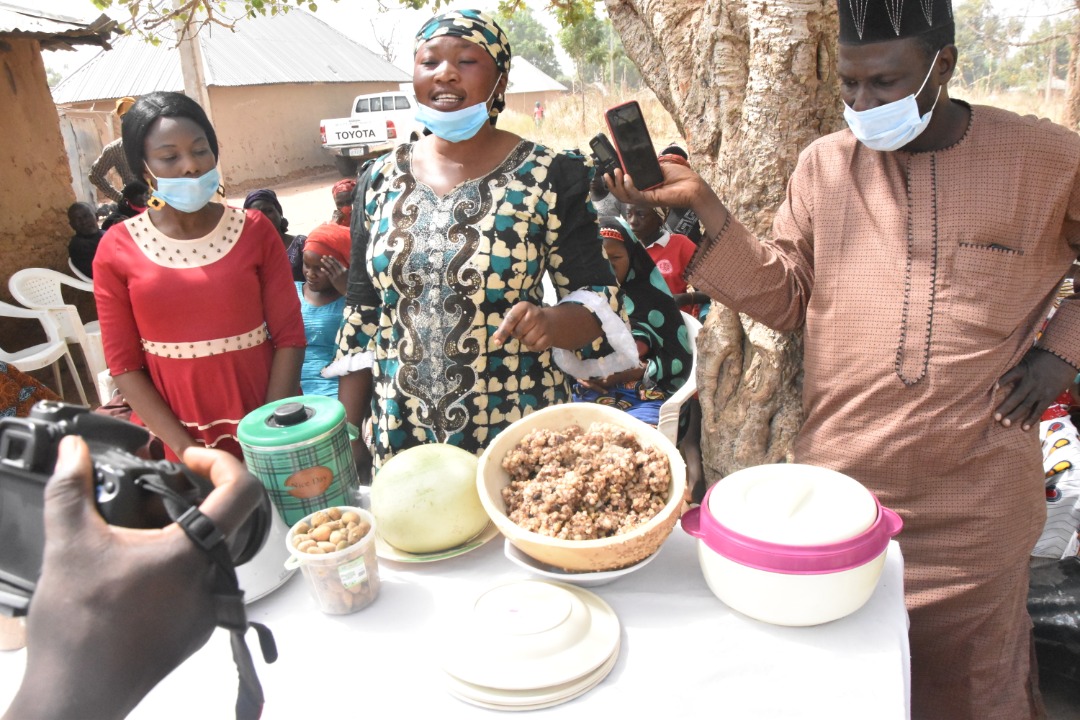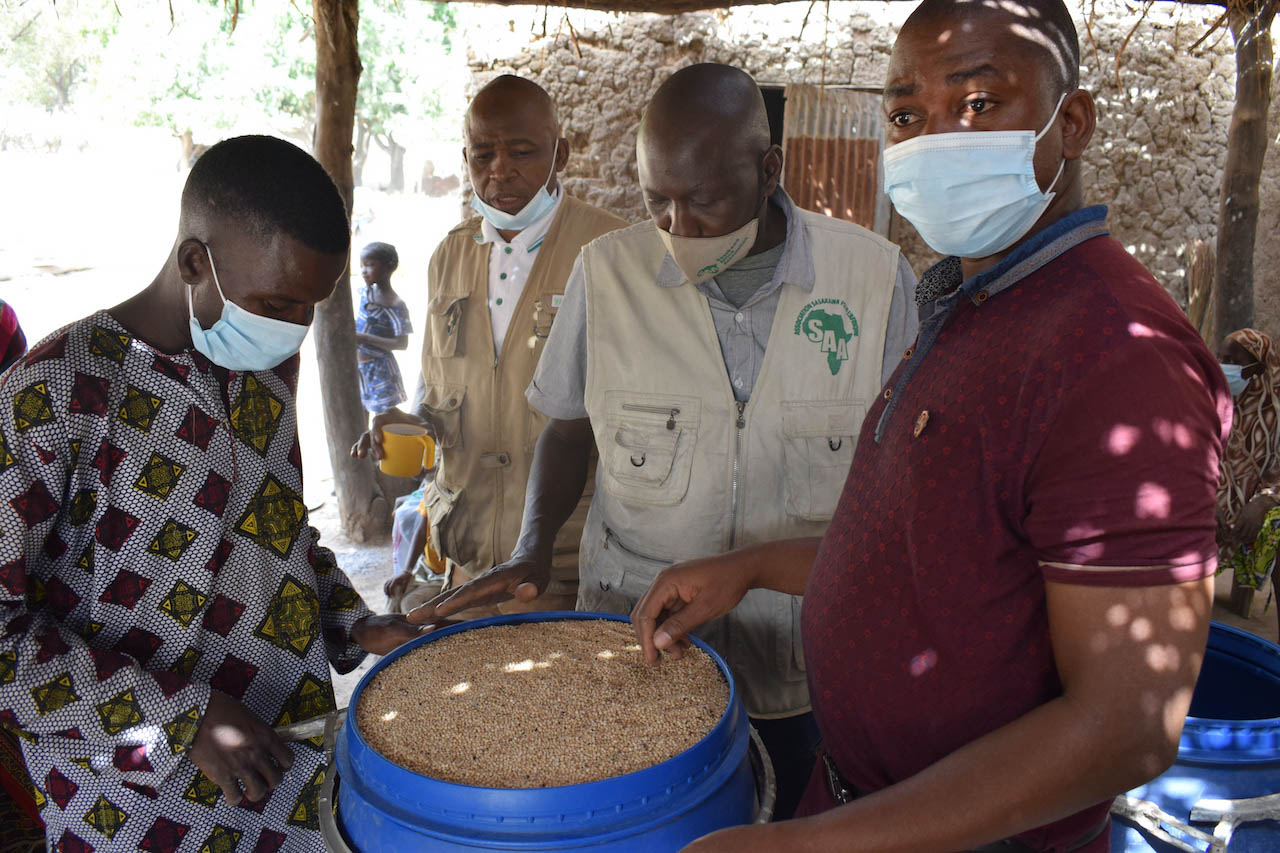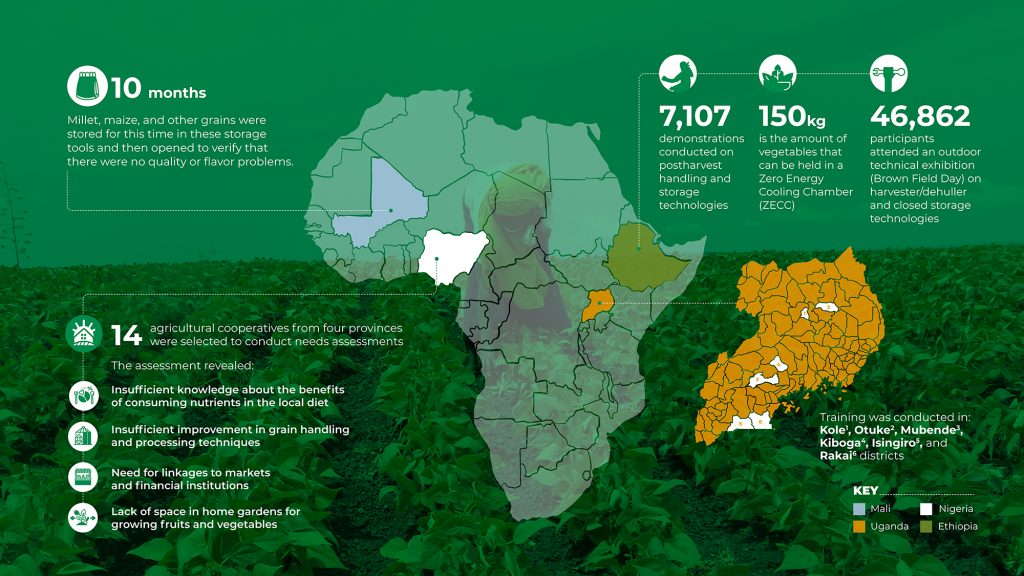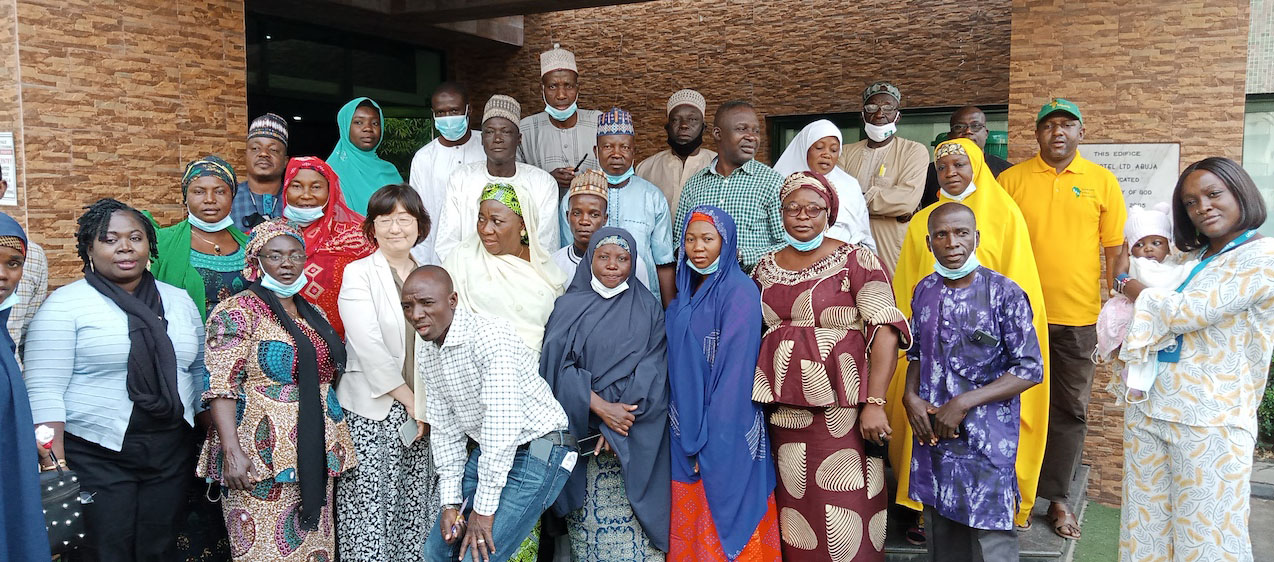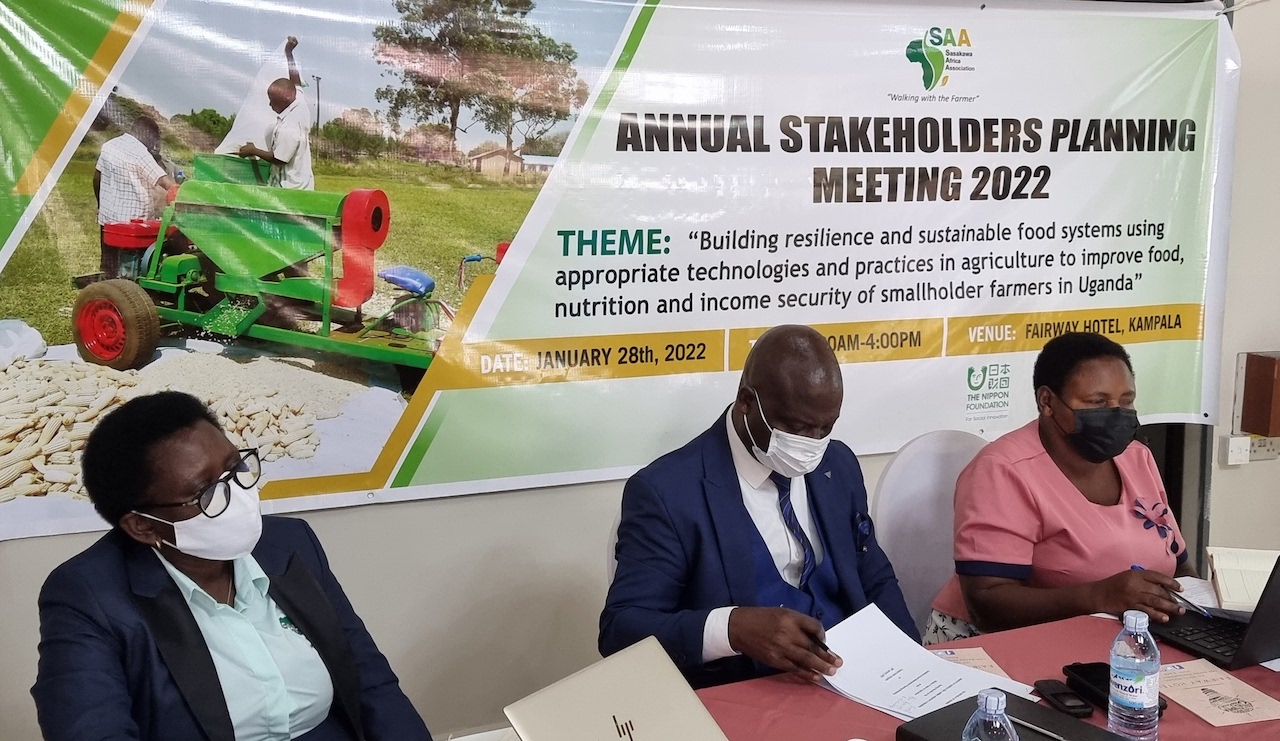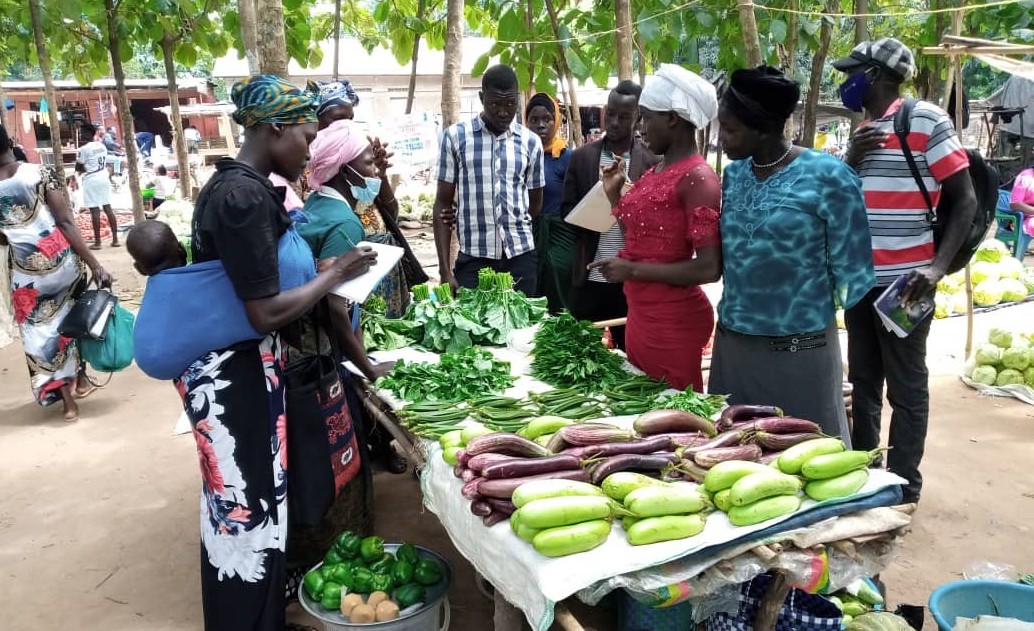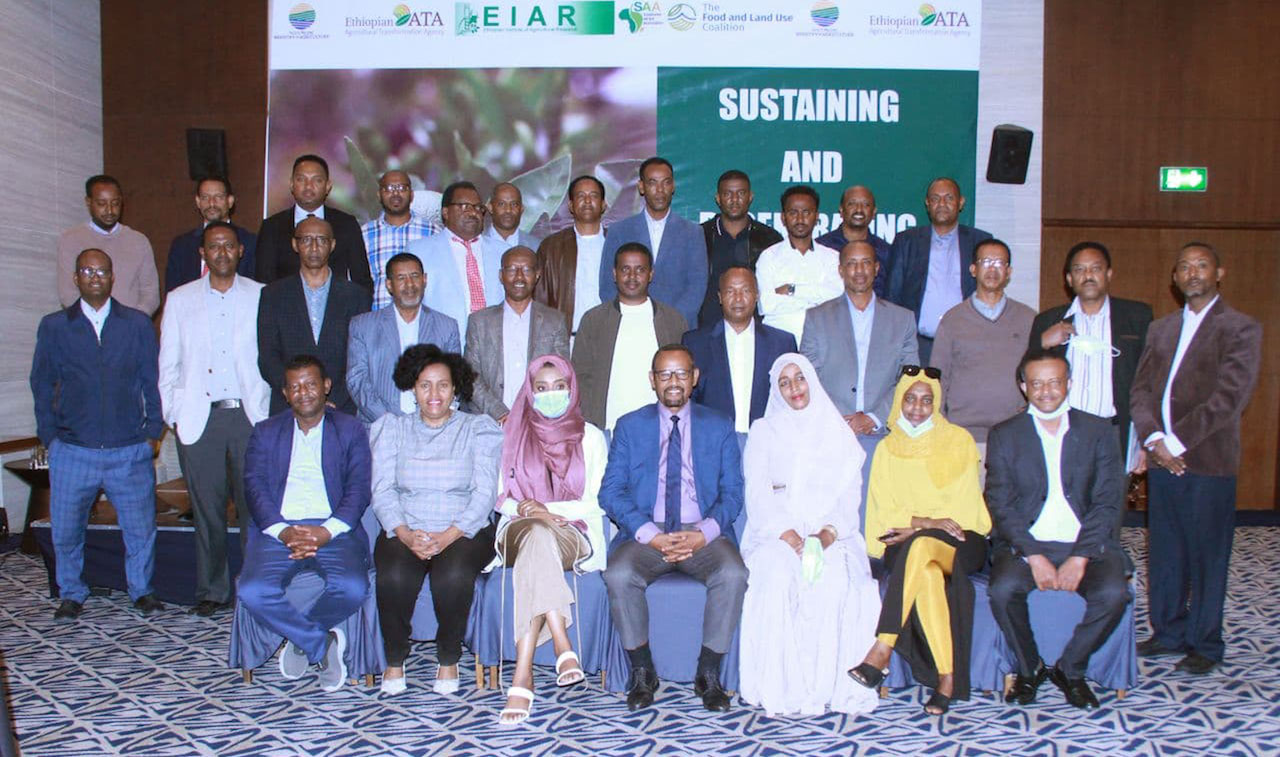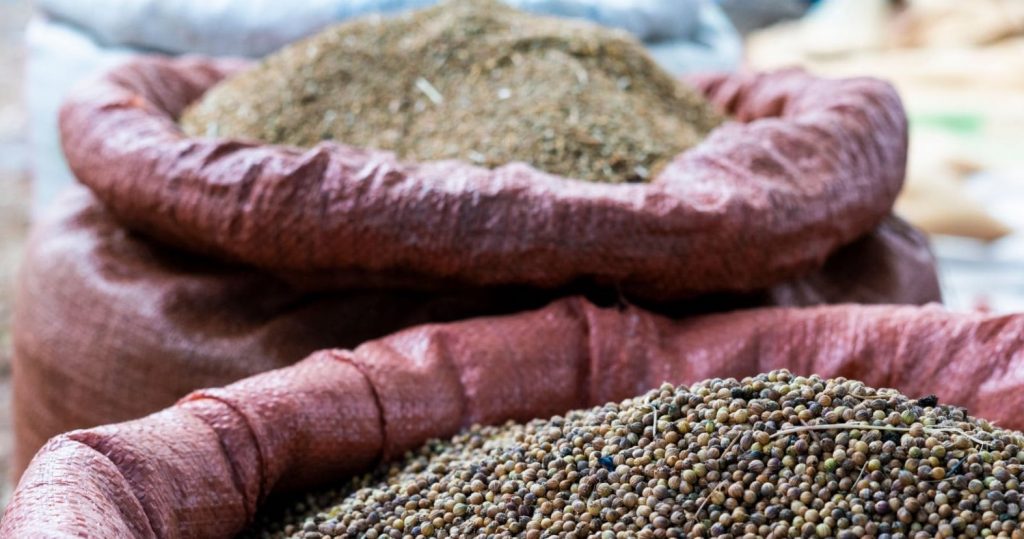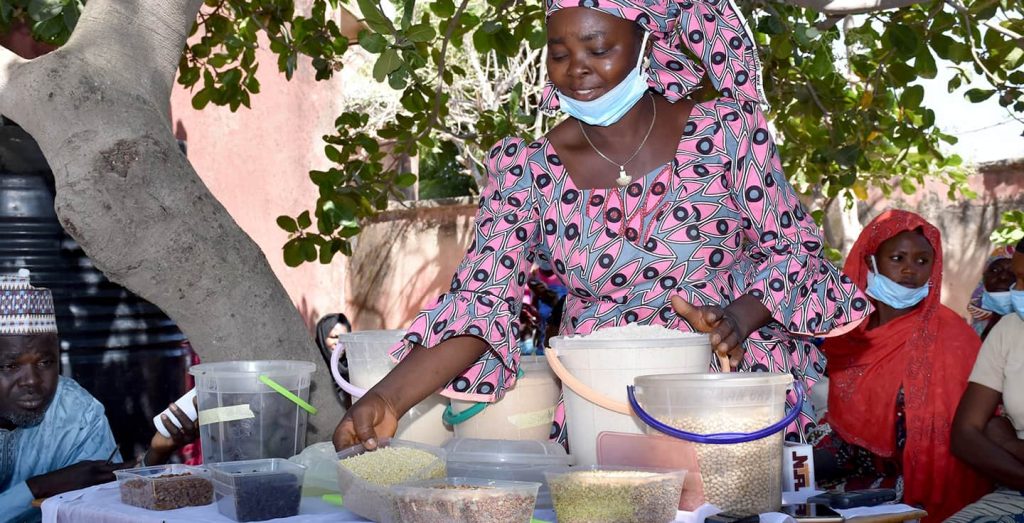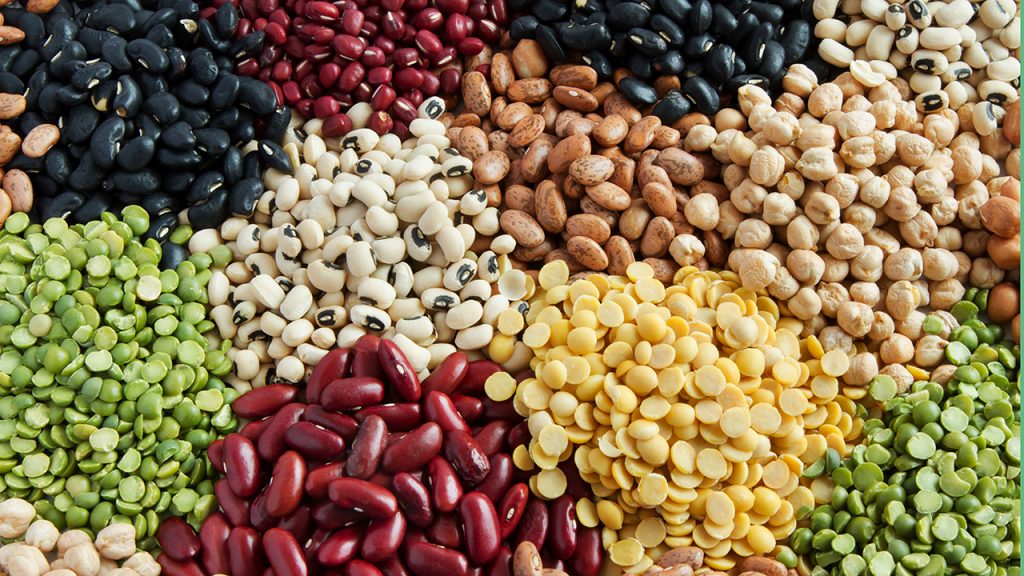Message from the President
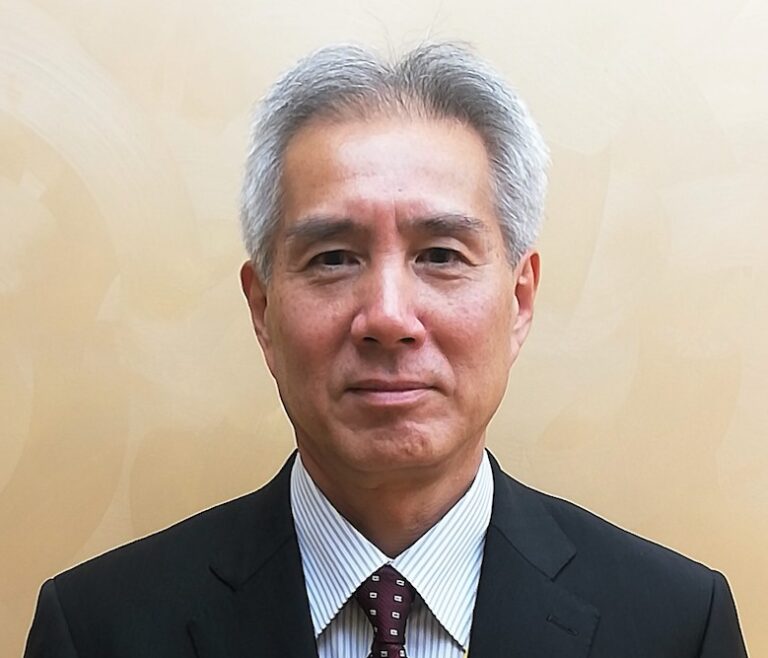
Message from the President
We are pleased to launch this e-newsletter through which we will share our experiences in the pursuit of agricultural transformation in Africa, which has been our key mission for the past 35 years. This inaugural issue of the newsletter focuses on nutrition-sensitive agriculture (NSA), one of the three core pillars of our new strategy (2021-2025).
It also draws from our previous work in combating malnutrition and promoting food safety. In the last few months, we are pleased to have signed an MoU with HarvestPlus, a leading organization in nutrition improvement, following which we co-hosted an official side-event at the Nutrition Summit last December to promote biofortified crops. Such activities are in line with our plans to scale NSA across Africa and will continue to define our engagements with smallholder farmers in Africa going forward. This is as we strive to improve household agricultural productivity and livelihoods through capacity-building along the agricultural value chains and strengthened agricultural extension systems. Meanwhile, we will continue to advance our new strategy, which in February received a notable commendation from Uganda’s State Minister of Agriculture, Animal Industry and Fisheries (MAAIF), Hon. Fred Kyakulaga Bwino, for its compatibility with his government’s priorities for sustainable rural development. We have also received positive responses from ministries of agriculture across other program countries with which we continue to work with closely.
Thank you and I hope you find this newsletter an informative read.
Sincerely,
Dr. Makoto Kitanaka,
President, Sasakawa Africa Association
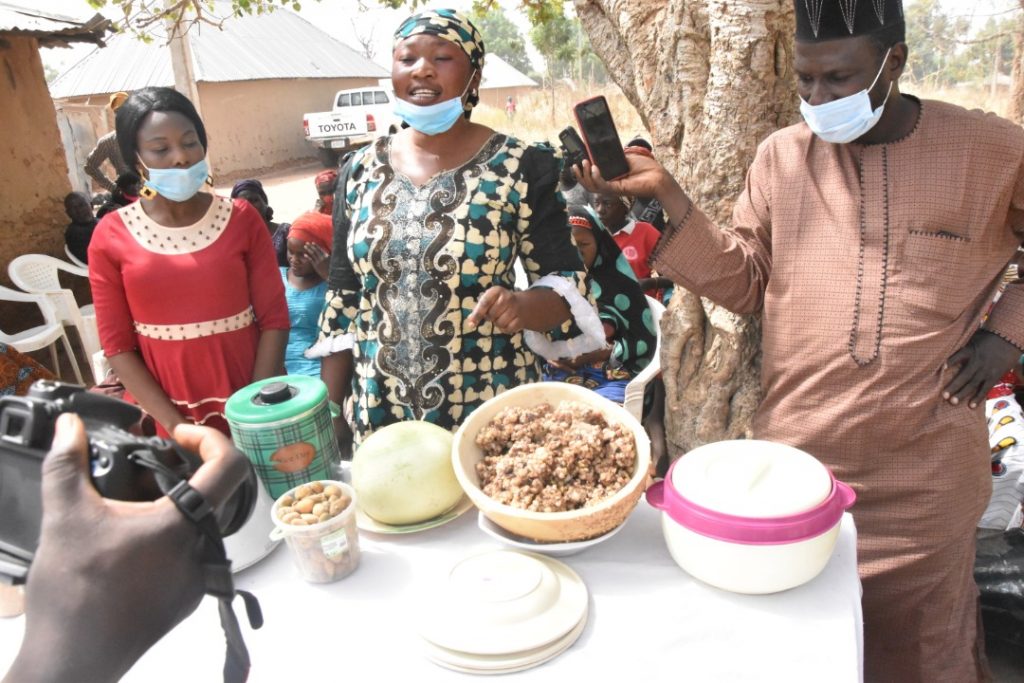
ONGOING NUTRITION SENSITIVE AGRICULTURE PROGRAMMES
ONGOING NUTRITION SENSITIVE AGRICULTURE PROGRAMMES
Nutrition awareness programme in Nigeria improves families’ diets
From September- October 2021, SAA trained 125 frontline extension agents in the Nasarawa, Jigawa, Gombe and Kano states including eight community health extension workers on the usage of nutrient-dense crops in creating balanced diets and improving food diversity options. The trained agents cascaded the knowledge to 8,635 farmers (1,707 female). The programme was part of SAA’s strategy of using Nutrition Sensitive Agriculture to promote the consumption of adequate local balanced diets that improve the Household Dietary Diversity Score (HDDS) and reduce the stunting rate for children under five years of age. The nutrition awareness program encouraged farmers to consume diverse local foods, in addition to embracing hygiene and physical exercise for good health. It also addressed the importance of breast and complementary feeding for babies as part of the approaches for reducing malnutrition reduction in the targeted communities.
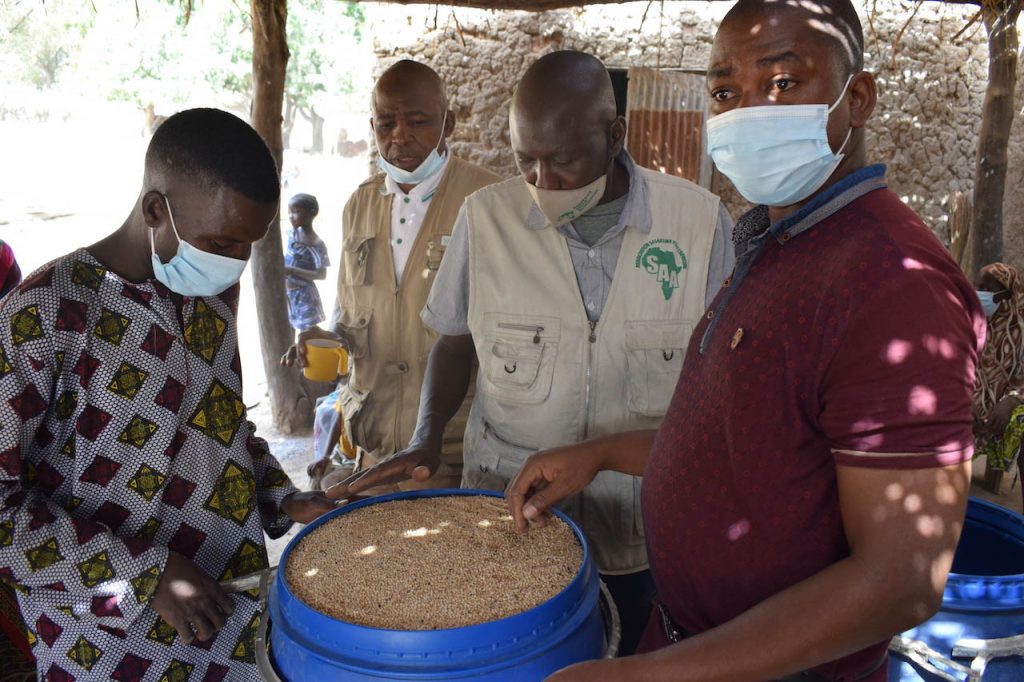
ONGOING NUTRITION SENSITIVE AGRICULTURE PROGRAMMES
ONGOING NUTRITION SENSITIVE AGRICULTURE PROGRAMMES
Malian farmers learn benefits of hermetic storage technologies to preserve grain quality and reduce costs
SAA conducted a demonstration in Mali to illustrate to farmers the effectiveness of hermetic storage. We established demonstrations in farmers’ homes within the village of Doumbadjila, where, for nine months, starting March 5, 2021 to December 8, 2021, equal quantities of maize and sorghum were stored in different containers including plastic silos, PICS bags, and recycled plastic containers. Ordinary polypropylene (PPP) bags were used as controls for the test. The grains from the different containers were visually assessed for quality at the end of the test period by 179 participants, including 177 farmers (65 female) and two extension agents. The grains in the hermetic storage containers were found in good quality free of insect or pest damage, and had no color or odor change, which is suited for household consumption, seed production, as well as for sale, where they can get higher prices. Meanwhile, the produce in the PPP bags had insect pest infestation. The test confirmed that farmers using hermetic storage have more advantages since their produce gets higher prices in the market and saves the cost of grain storage pesticides, which are mandatory when using non-hermetic storage techniques. Hermetic storage was also shown to be superior to other storage techniques since the products are free of chemicals and thus safe for consumption.
NUTRITION SENSITIVE AGRICULTURE BY THE NUMBERS
EVENTS
SAA NUTRITION SENSITIVE AGRICULTURE PARTNERSHIPS
SAA joins JICA to promote Provitamin A Maize in Nigeria
On February 1-2, 2022, SAA participated in a seminar for extension agents and women in agriculture from Nigeria’s Niger State. The workshop showcased the importance of production and consumption of Provitamin A Orange Maize in transforming the nutritional status of children under five, women of childbearing age, and lactating mothers. The workshop was part of the activities of the Initiative for Food and Nutrition Security in Africa (IFNA), which is co-chaired by NEPAD and the Japan International Cooperation Agency (JICA). As JICA’s key partner, SAA was invited to train the participants on good agronomic practices, and post-harvest handling and storage management of Provitamin A Maize. A total of 25 participants attended the seminar, which combined presentations with practical demonstrations and group exercises to quickly disseminate knowledge. The training was in line with SAA’s objective of promoting good nutrition across Nigeria.
ANNUAL STAKEHOLDER MEETING TO ALIGN ON NEW STRATEGY
Annual stakeholder meeting to align on new strategy
Between January and February 2022, SAA conducted its annual stakeholders’ planning meetings across its four program focus countries under the following themes:
- Ethiopia: “Regenerative Agriculture for Environmental Health, Economic Profitability, and Social Equity in Ethiopia”
- Uganda: “Building resilience and sustainable food systems using enhanced technologies and practices in agriculture to improve food, nutrition and incomes of smallholder farming families in Uganda”
- Mali: “Resilience of farming households in the face of the challenges of productivity, processing, marketing and consumption of agricultural products: Current status and prospects in Mali”.
- Nigeria: “Improving Food Systems and Livelihood Through Regenerative, Nutrition-Sensitive and Market-Oriented Agriculture in Nigeria”
Participants included representatives from the ministries of agriculture, research institutions, universities and the private sector, and other actors along the entire Agriculture Value Chain. During the meetings, SAA shared major achievements from 2021 activities and interventions and the Annual operating plans for 2022 as well as its new strategic plan (2021-2025). As a result, new commitments were developed to lead the implementation of planned initiatives. The meetings also enabled SAA to gain information and partnerships on relevant recent research developments and agricultural innovations.
ANNUAL STAKEHOLDER MEETING TO ALIGN ON NEW STRATEGY
SAA signs MoU with IFPRI to strengthen agriculture and nutrition security in Africa
On January 5, 2022, SAA signed a partnership Memorandum of Understanding (MOU) with the International Food Policy Research Institute (IFPRI). The collaborative partnership will strengthen agricultural extension services and address food and nutrition security issues in Africa and the partnership will deepen collaboration in:
- Knowledge generation, packaging and sharing to support the implementation of agricultural extension and advisory services as well as capacity-building for agricultural extension agents and organizations in Africa.
- Transformation of African agriculture for economic growth and development through effective extension and advisory services and approaches for the efficient sharing of agricultural innovations for sustainable intensification, nutrition-sensitive and climate-smart agriculture, and market-oriented agriculture.
- Design, study and implementation of the new initiatives promoting agricultural extension and advisory services for agricultural transformation in Africa.
- Documentation of lessons-learned, best-fit agriculture practices, and scientific evidence of the success of the agriculture innovation interventions in Africa.
- Initiation and publishing of policy briefs and technical manuals on relevant agriculture innovation
Participation in the eighth Tokyo International Conference of African Development (TICAD 8) to be held in Tunis, Tunisia between August 27 and 28, 2022.
ANNUAL STAKEHOLDER MEETING TO ALIGN ON NEW STRATEGY
SAA partners official unveiling of Sustainable and Regenerative Agriculture Coalition in Ethiopia
On March 5, 2022, SAA joined four other partners in Addis Ababa, Ethiopia, to launch the Action Coalition for Sustainable and Regenerative Agriculture Commercialization. The Coalition is a joint creation of SAA, Ethiopia’s Ministry of Agriculture, the Agricultural Transformation Institute, the Ethiopian Institute of Agricultural Research, and the Food and Land Use Coalition. The Coalition’s objective is to develop an action roadmap for advancing regenerative agriculture and achieving environmental, social, and economic sustainability outcomes in Ethiopia’s transition from subsistence to commercial farming. During the launch gala, themed, “Regenerating and Sustaining our Agriculture”, member representatives outlined the rationale for the coalition, and proposed processes for an action roadmap. SAA’s contribution was notable as it comprised on-the-ground regenerative agriculture experiences. There was also substantial media coverage of the launch, including an Op-Ed penned by the founding members, which was published in the popular Ethiopian weekly business newspaper, Capital.
